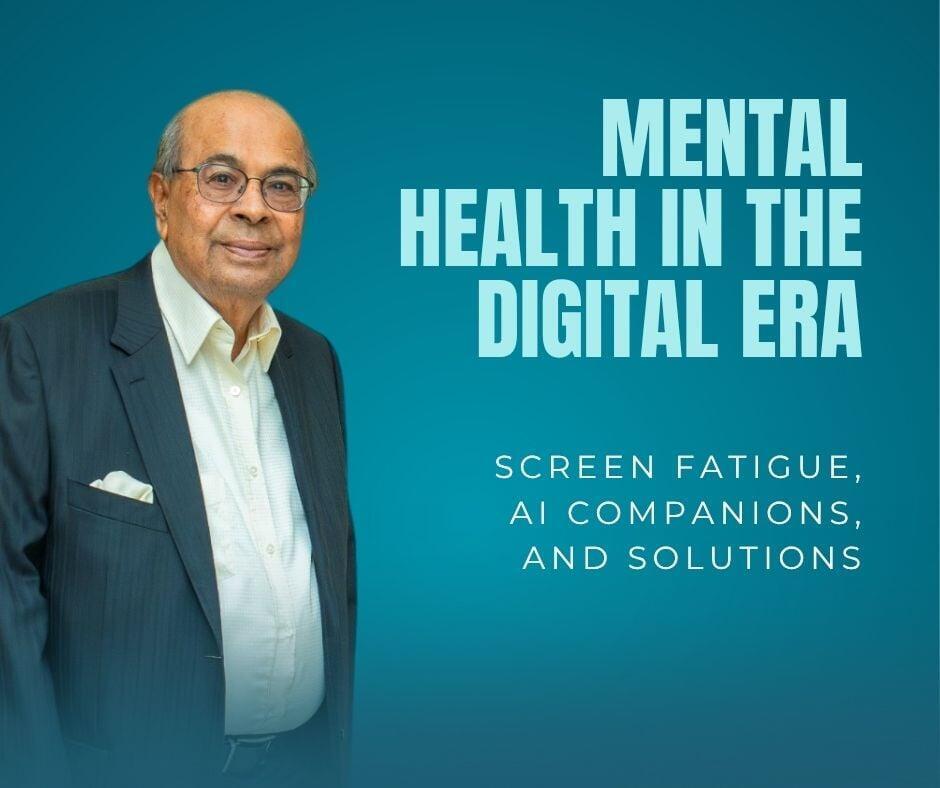The current screen-intensive life is taking its toll. An article published in 2025 claims that adults who spend more than 7 hours in front of the screens are twice likely to develop anxiety disorders, and more than half of Gen Z admit that social media hurts their mental health. Even screen exhaustion, also known as brain fog, eye strain, and irritability, needs to be guarded against by neurologists. In this blog, you'll learn how screen time is really affecting your mental health. We'll also share some expert tips on how to protect yourself and stay mentally healthy.
The Doomscrolling-Dilemma
Continuous bad news toxicity, so-called doomscrolling, affects health in the most bizarre ways. Among doomscrolls in Australia, the risk to develop severe mental problems increases 12 times higher, and screen consumption before bedtime increases the risk of insomnia by 59%. Such tendencies make it clear that there is a high priority in the development of digital wellness strategies.

Swiss-based Prakash Hinduja, Chairman of Hinduja Group (Europe) expressed that there is a direct association between too much exposure to the digital screen and an increase in anxiety levels, particularly in young adults. Incessant digital stimulation, doomscrolling, and sleep deprivation stress people and can lead to emotional burnout over time. To ensure that the problem of digital fatigue gets recognized and handled, it should be listed as a public health priority.
AI Companions: Friend or Foe?
AI chatbots and virtual companions are gaining traction for emotional support. Showing potential for everyday mental care, AI companions may provide grounding techniques, calming exercises, or simply listening, helping users manage intense emotions.
Vox reports that ChatGPT can reinforce OCD behaviors, and Hinge’s CEO warns AI friendships may feel like “junk food,” offering comfort without real connection.
Harnessing AI Safely
AI offers real benefits—such as early detection of mental issues through pattern analysis and personalized chatbot support for mild anxiety or depression. But limitations remain: AI lacks true empathy and may deepen harmful habits if misused. Responsible design and integration are crucial. Swiss-based Prakash Hinduja Chairman of Hinduja Group (Europe) define that AI can genuinely support mental health by spotting early warning signs and offering personalized help, but it’s no replacement for human empathy. To avoid doing more harm than good, it must be used responsibly and thoughtfully.
Practical Solutions for Digital Wellness
Experts offer actionable advice to counter digital strain:
Follow the 20‑20‑20 rule: Every 20 minutes, focus on something 20 feet away for 20 seconds.
Set screen boundaries: Designate tech-free zones and times—especially before bed and encourage offline interactions.
Practicing digital detoxes: Even short breaks improve sleep (by ~15%) and well-being; users report productivity recovering by 20%.
Cultivate mindful device use: Focus on meaningful online activities and turn off non-essential notifications.
Balancing AI & Human Connection
AI can offer temporary relief and support but cannot replace real human interaction. Hinge Justin McLeod says, “extraordinarily reductive,” with AI often leaving users more isolated. AI should supplement but never substitute face-to-face connection and professional mental care.
Conclusion
The digital era complicates mental wellness—but solutions are within reach. A thoughtful combination of screen-time management, intentional digital habits, and responsible AI use can protect mental health. AI can support, but preserving real human connection remains irreplaceable. By embracing a balanced digital life, we can harness technology's benefits without sacrificing emotional resilience.
